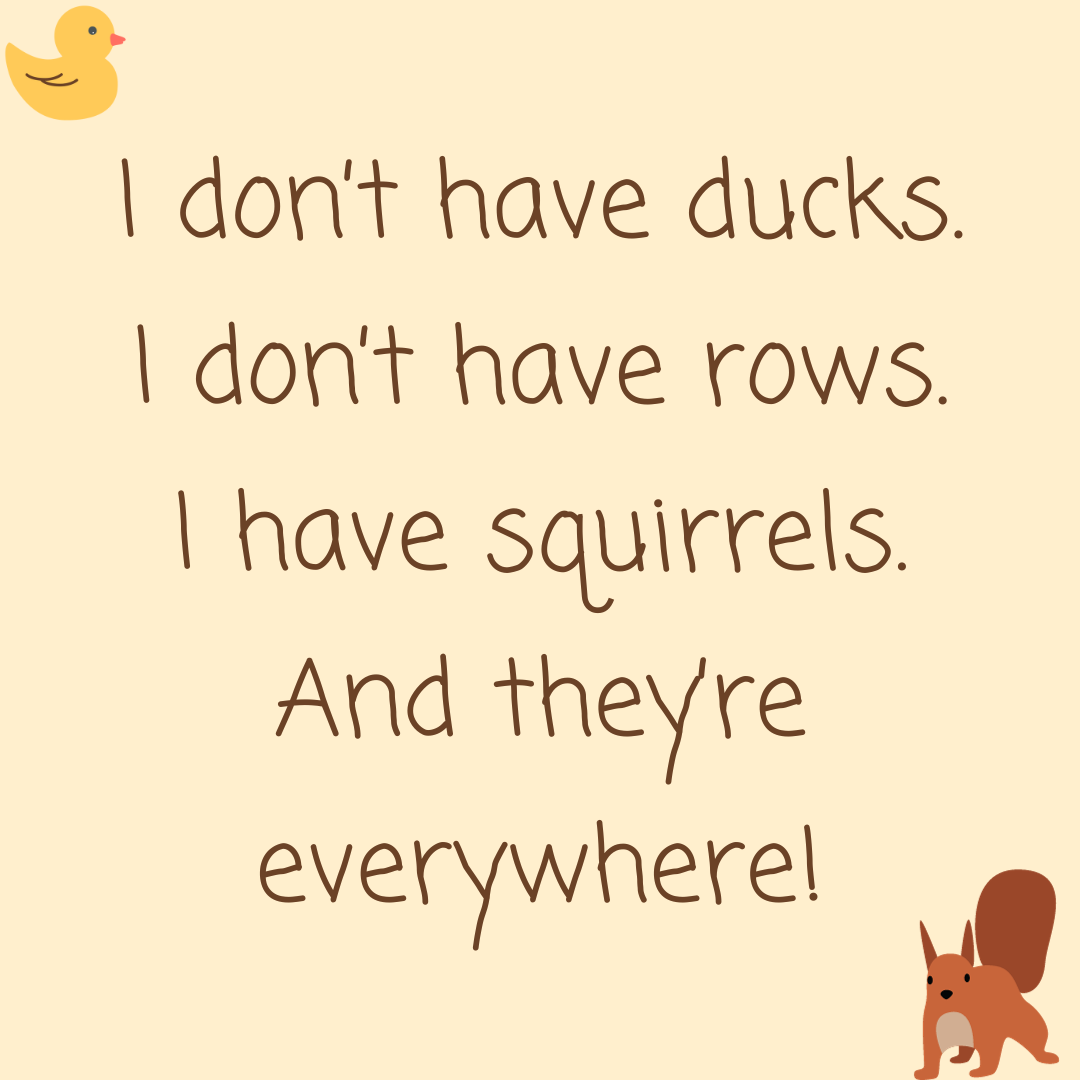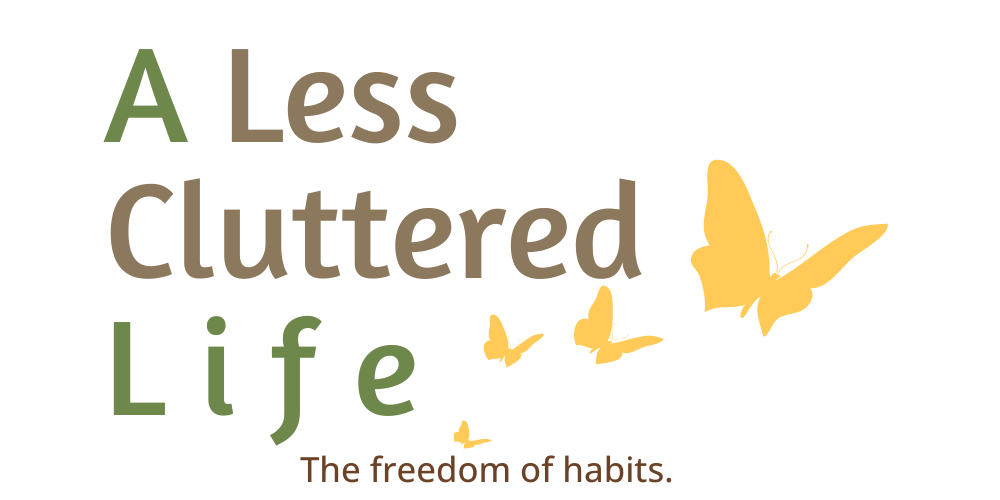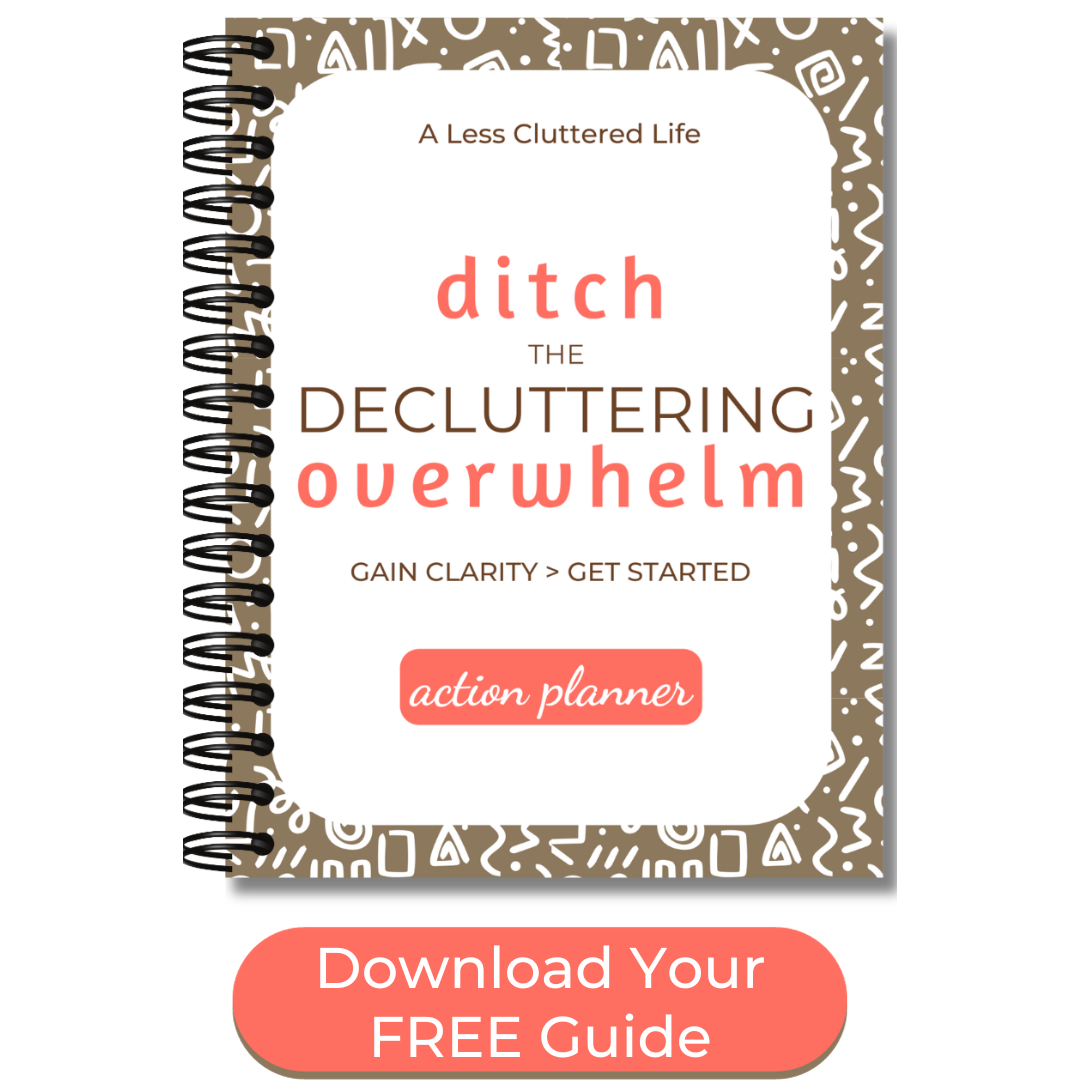|
by Susan McCarthy Is decluttering just about creating space on your kitchen counter and getting rid of the jeans that haven’t fit since college? What is the purpose of decluttering? It goes beyond the physical stuff. Decluttering frees you of expectations, creates space in your home and your schedule, and makes life a bit more peaceful. When I do presentations about getting organized, I usually start with the question, “Why do you want to declutter your home?” Call it professional nosiness. Am I addressing moms frustrated by all the stuff their kids have? Older adults trying to navigate downsizing? Am I giving someone permission to get rid of that thing they’ve never liked? Underneath the more specific reasons is this common response - “I hate feeling overwhelmed by all this stuff, just looking at all the things in my home exhausts me.” I’ve even started asking new subscribers to my email list, “If you had a magic wand, what organizing challenges would you do away with?” I love to hear people’s responses, because within their descriptions of clutter-free kitchens, tidy closets, and functional home offices is what they really want – their purpose for decluttering. They don’t just want an organized closet. They want to feel better about themselves by liking the clothing they have to choose. Cleared kitchen counters means that they have the space to prep meals so they can stop relying on DoorDash and meal delivery services. Clearing the clutter piled up in the guest room means having a space for the grandkids to stay for the weekend. Decluttering is less about the stuff and more about the things you could do if you were weighed down by stuff. Identifying your purpose for declutteringIt’s very easy to get focused on the task at hand – minimize the stuff surrounding you so that you have what’s useful and what you love while the rest goes away to charity or friends or the trash. We realize we are not our stuff, and that clutter isn’t about the stuff but about our expectations for our lives. So, what do you want from your life? If you look at your stuff (or think about areas where you’ve decluttered), what does it say about your expectations for your time? Is there exercise equipment, hobby supplies, books, clothing, and other things here and there in your home that suggest you live a life very different from the way you actually spend your days? So, if you woke up tomorrow and your home was decluttered of everything that you don’t use, enjoy, or cherish, what would you be left with? What would you do with your time? Why is this important to know? Because when you declutter, you’ll find things that you don’t know what to do with. Or more accurately, you feel that you should hold onto in case you need these things someday. Can you describe what that day would look like? What would happen if you didn’t have these things? Could you use something else or borrow the item? While it’s tempting to hold onto things just in case you need them, will you really? When you identify your purpose for decluttering, it can be easier to make decisions about the things you are sorting through. If you’re planning on downsizing, does it make sense to hold onto the holiday place settings for sixteen? Would you be able to host that many people in your new home? Does it make more sense to see if the family members who are picking up the tradition would appreciate these things? What does it mean when you want to declutter?Taking steps toward decluttering (like reading articles about clearing clutter), suggests that you are ready for a change. Before you considered decluttering, you were probably okay with what you owned. But then, *tink*, something pushes you over the edge and suddenly you can see all the stuff that you own. This stage can be stressful. You might be annoyed that you didn’t see the clutter before or that you didn’t do anything to prevent it from occurring. Of course, you can’t change the past, but you can change the future which, further into the future, will be viewed as the past (if you geek-out over time-traveling brain twisters). Another way to think of decluttering is as a way to help out your future self. If decluttering is difficult now, will it be any easier when you’re 75 years old? Do you want to be beleaguered by an attic or basement filled with stuff that you haven’t used or even looked at for decades? Focus on the things that annoy you if you want to feel accomplishedAlso, you can use your annoyance to decide where to declutter. One of the most common questions I’m asked is, “Where should I start decluttering?” There is no set answer. One of the best places to start is usually the space that bothers you the most. It doesn’t matter if it doesn’t seem logical to declutter the space under your kitchen sink. If that’s what is bothering you, empty the space and declutter. Embrace that annoyance – it’s energy that you can use to act toward change. Remember, you don’t bother to change things that don’t bother you. So, go ahead and feel annoyed. And, as a bit of a bonus, when you tackle a space that bothers you, you’ll feel more accomplished than if you tackle that “logical” decluttering project of sorting through your files. Taking on the areas that bother you most is also a way to be kind to yourself. You’re eliminating clutter that upsets you…helping to make your days more peaceful. Why decluttering is important for self-careWhen you hear the phrase “self-care” your mind may go to massages, manicures, or even spending the morning in bed. Decluttering probably doesn’t make that list. At all. But, for all the hauling, bending, and sorting that are a part of decluttering, it can also be an important part of self-care. How? Decluttering items that you don’t and won’t use frees you from burdens and releases you from expectations. Taking on annoying tasks relieves you of those annoyances, making your day run a bit smoother. You won’t open your closet and face all the clothing that you keep telling yourself that you’ll wear someday when you manage to lose 30 pounds. You won’t face the dozens of books on your shelves that you’ve never read but feel obligated to since you spend money on them. Also, decluttering saves you time in the long run. You’ll have fewer possessions that will demand cleaning and organizing in the future. If you struggle with low energy because of health issues, working on small decluttering projects will add up and make a difference to your home…and your life. Why does decluttering make you feel better?As I mentioned, decluttering reduces burdens and expectations. You can breathe a sigh of relief when you pass along the supplies to a hobby or interest that you no longer have the time nor inclination to participate in. Letting go of past hobbies and aspirations that never came to fruition, frees up your time, energy, and your attention. No more wondering and worrying when or how you can do that thing you’re not all that excited to do but feel that you should. And decluttering opens space, which I think helps you see possibilities. I know that when I returned to my parents’ overpacked house (with far too much stuff squeezed into my room), the walls were closing in on me with all the boxes and furniture that ate up the available floor space. I felt trapped and couldn’t see beyond the stuff. When I started decluttering, I was taking charge of my life, not just my stuff. And when I emptied my parents' house, I took an even deeper look at my stuff and decluttered more. Eventually, this work inspired me to change careers from nature and art teacher to professional organizer. Decluttering really can make big, unexpected changes in your life. What happens when you declutter?Decluttering is all about deciding which possessions you want to keep in your home. You identify the things that you use, enjoy, and appreciate. Essentially, you are deciding what is important to you. Decluttering has you face the changes in your life. Once upon a time, you may have participated in recreational activities that you haven’t done for years. You’ve held onto the things associated with that activity because, mentally, you haven’t let it go. You might not even realize this. Part of your identity may be tied up in that interest or activity. You still think of yourself as someone who __________. I remember walking past my bookshelves one day and having a group of books catch my eye. It suddenly occurred to me that I hadn’t read one of them for, oh, twenty years! But I still identified myself as someone with that interest. Really? I decided that my best course of action would be to read these books. I grabbed a stack and stuck them on my bedside table…where they stayed and stayed. Nope, I was done with them. I cleared over three shelves and made a hefty donation to my library’s book sale. Just in case you may be thinking that these books were in an out of the way area in my home, I walked past them daily…and I’d packed and unpacked them during six moves. If you find yourself suddenly wondering why you’ve held onto stuff for so long, you’re not alone. This is also a likely reason for decluttering being so mentally draining. You aren’t just clearing some things from a drawer; you’re changing how you view yourself. Deciding whether something is important to keep…or if you can let it go…comes down to the person you think you are. Why does decluttering feel so good?As I’ve mentioned a few times, decluttering frees you from burdens and expectations. While making the decision to declutter things can be challenging, when you make the decisions, you welcome in a bit of freedom. Less cleaning. No more rearranging things to fit everything in. No spending money on more bins and organizing gadgets. No organizing things at eleven o’clock at night so you can wrap up a task that took far longer than you thought it would. More Resources to Help You Clarify Your Reason for Decluttering
0 Comments
Your comment will be posted after it is approved.
Leave a Reply. |
Categories
All
Hi, I'm SusanI'm a former teacher who became a professional organizer (and not because I'm a natural-born neatnik). I live with my husband and fluffy cat on a river in Massachusetts. I crochet, make handmade cards, and love reading young adult novels. Learn more about my decluttering journey here. |
|
Copyright 2024 Susan McCarthy - Susan@ALessClutteredLife.com -
Privacy Policies |
Proudly powered by Weebly

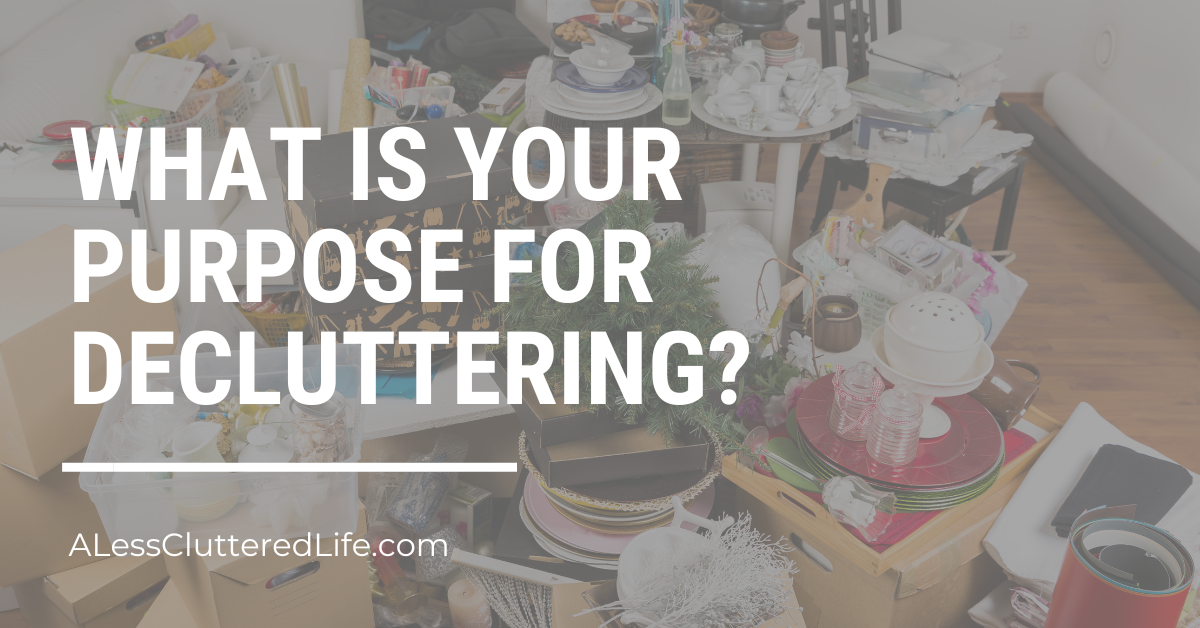
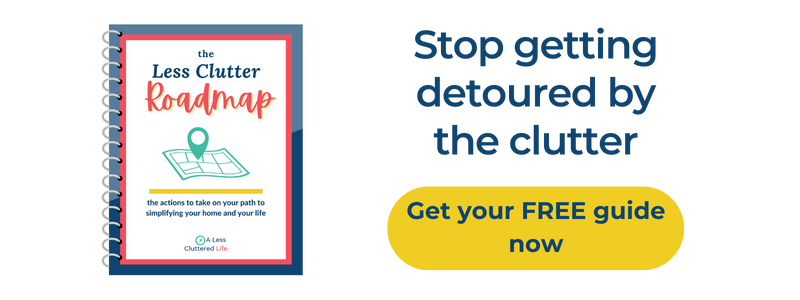
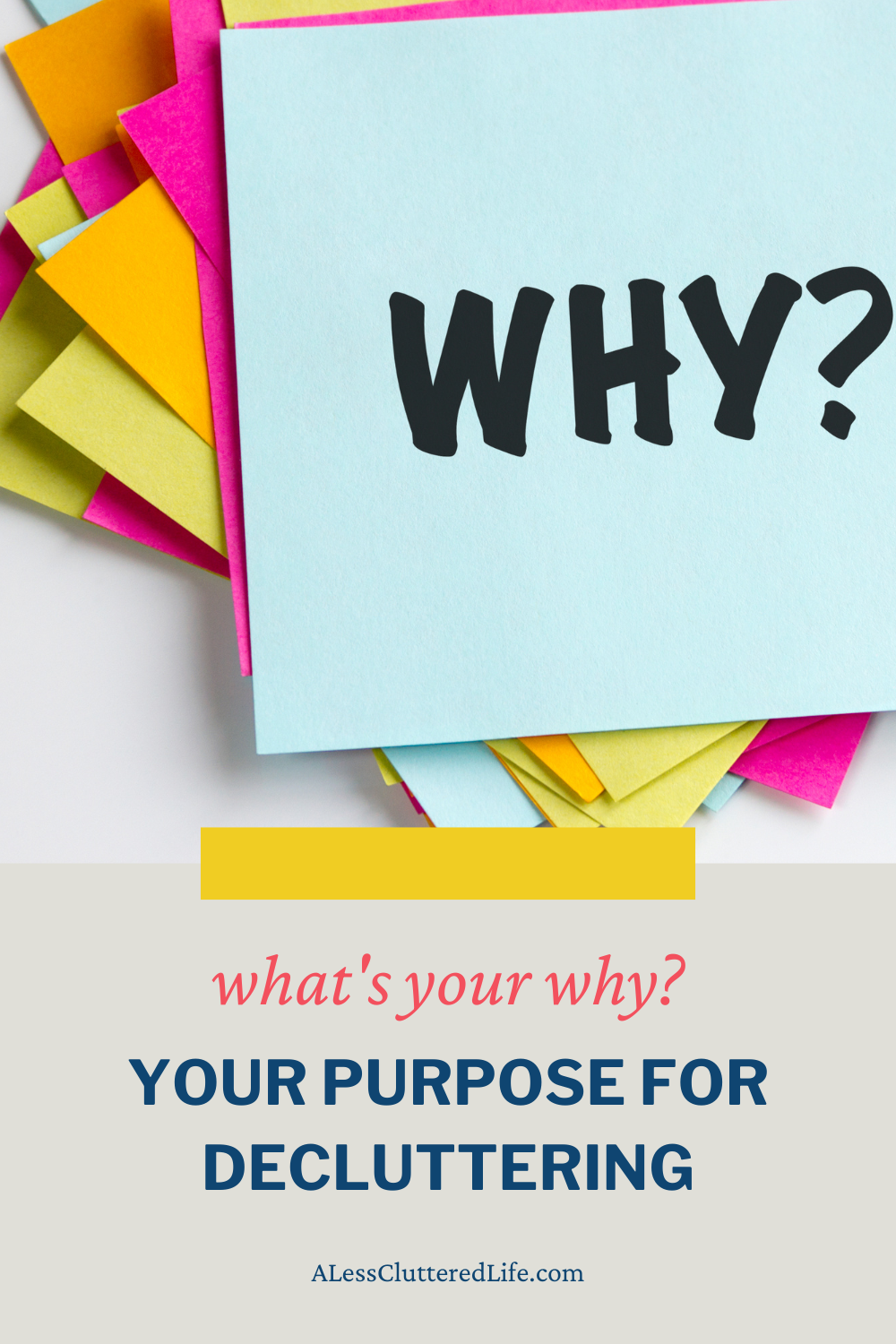
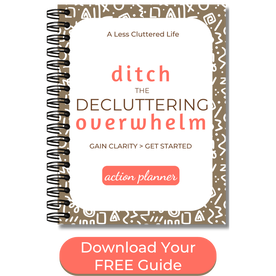
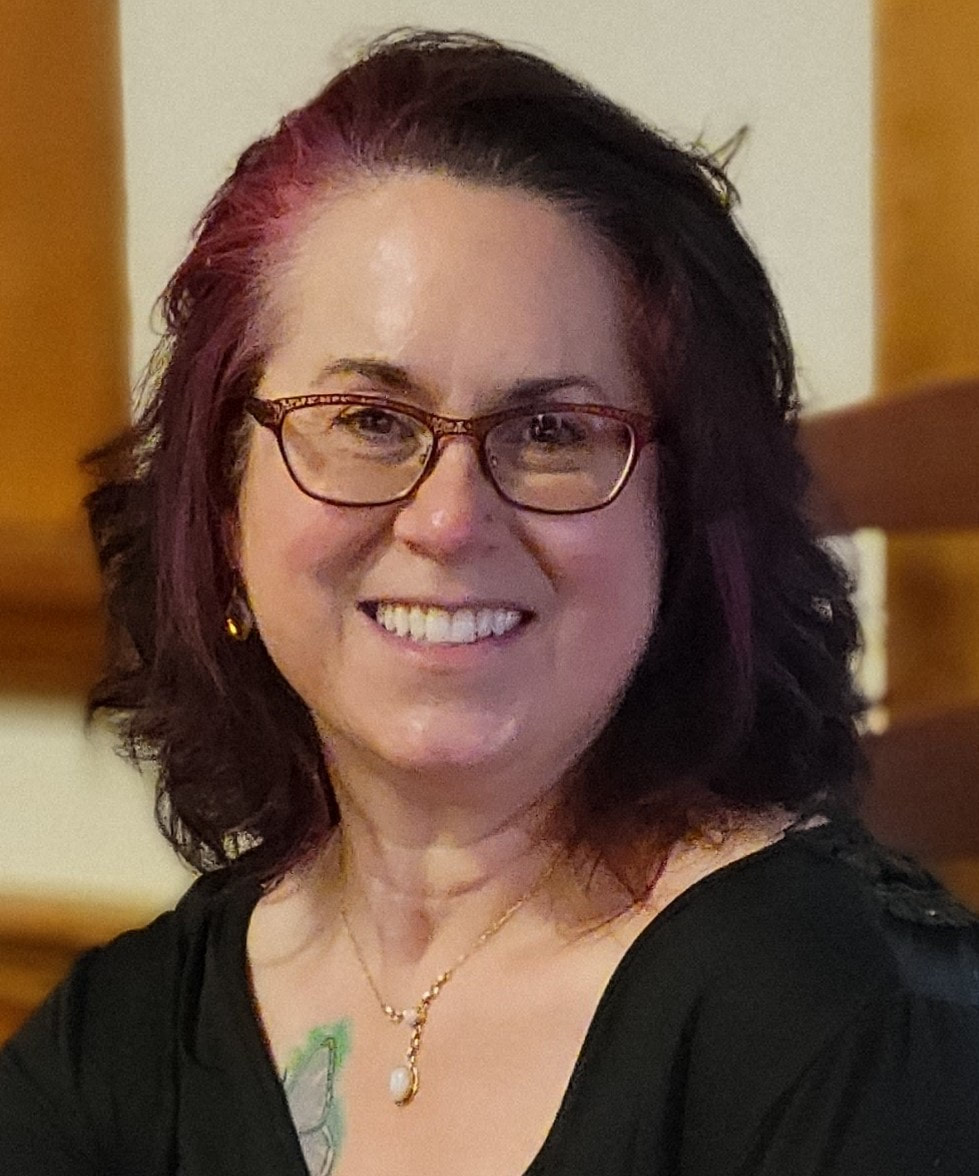
 RSS Feed
RSS Feed
